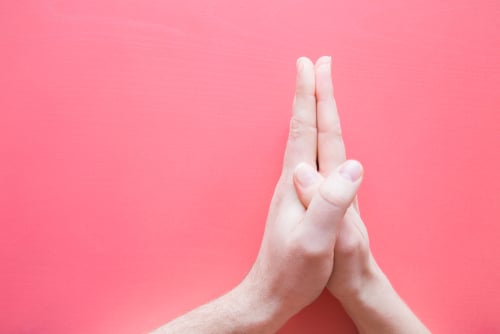Most people look for life-long partners or at least a committed relationship. But what determines our choice of partners? Why do some individuals attract us more than others? Psychologists and behavioral researchers have long been trying to find an answer to these questions, and it’s safe to say that they’ve come up with a number of valid observations.
Finding a compatible partner can be an easy task for some, and a nightmare to others. If you are having a hard time establishing lasting relationships, reaching out to a relationship coach online can be of great help in understanding the laws of attraction. In the meantime, keep on reading to learn which factors determine our relationship choices.
How Do Humans Choose Their Partners?

There are two main perspectives when it comes to the way we choose our partners – evolutionary theory and social role theory. Here’s what each of these theories proposes.
The evolutionary theory of human attraction focuses on the idea that we are attracted to personality features, physical traits, and behavioral tendencies that increase our chances of reproduction and survival.
From an evolutionary standpoint, women are attracted to men who can protect them and their children, hence the focus on economic status and power in the modern day and age, whereas men are attracted to younger, fertile women.
But, naturally, our biological build isn’t the only thing that influences attraction. In fact, our relationship choices are also dictated by our roles in society, which tend to shift over time along with social norms. For instance, the social climate of today is vastly different from that of a hundred years ago, with both men and women working full time and occupying increasingly more similar roles in society.
This means that we may start to value the social and economic status of our partners equally, regardless of gender. The bottom line here is that shifts in our culture also have an impact on who we find attractive.
Although society and biology both play a significant role in attraction, our subjective internal processes aren’t necessarily rational and don’t follow evolutionary and cultural mandates. What’s more, our conscious will may often have little say in the matter. Ultimately, our heart tends to have a way of its own.
What Determines Who We Fall In Love With?
Within the social, biological, and subjective categories, there are several individual factors that can lead us to choose one partner over another. Some of them are:
- Compatibility: you may be more attracted to someone if they have similar values, beliefs, and interests to yours, although you might also be attracted to someone with intriguing differences.
- Familiarity: your chances of falling in love can be increased if you spend quite a bit of time with someone. This may be at work, in school, or other social situations. The more you’re familiar with someone, the more likely you’ll be to fall in love.
- Reciprocity: it has been shown that we are more likely to be attracted to someone if we feel like they like us back, although attachment issues may cause attraction to emotionally distant individuals.
- Being alone with someone: your chances of falling in love will be greater if you spend a great deal of time alone with someone, especially if other factors are at play too.
- Self-esteem: if you struggle with confidence and self-esteem, your standards may be lower than they should be. This can make you more vulnerable to falling in love.
- Excitement: generally, we tend to be attracted to intriguing, mysterious individuals. If a person excites you with their presence and behaviors, you’ll be more likely to fall for them.
- Family: our parents and siblings also have a say in our choice of partners, although you may not consciously be aware of their influence. While it’s common that children choose partners who fit their parents’ preferences, some may also rebel against their family’s expectations.
Is Attraction A Choice?
While you might fall in love with someone based on unconscious subjective, social, or evolutionary factors, that is not to say that love is not a choice, although initial attraction may not be.
Let’s say you feel a strong attraction to someone and enter a relationship with them. The initial infatuation may last for a couple of months, or maybe years. But once it fades, you will need to make a conscious decision to stay in the relationship and make it work. At the end of the day, love is both a feeling and a choice.
We like to say that love is a verb. How you act and express yourself to another person can be loving – or it can be hurtful. Being “in love” with someone will require a level of respect for one another. How you treat your partner – the one you say you are in love with – matters.
Does Our Relationship With Our Parents Affect Our Relationship Choices?
The relationship you have with your parents or primary caregivers can have a significant impact on your love life. Here are some ways in which your parents influence your relationship choices:
- Being raised by abusive caregivers can make you more willing to accept emotional abuse in your adulthood. For instance, if your parents fought in front of you while you were young, you’ll be more likely to follow suit.
- The relationship with your parents can influence your relationship with intimacy. If your parents or caregivers were affectionate with you and with each other, you’ll be less likely to be emotionless and distant in your relationships.
- Your childhood can also have an impact on how trusting you are in relationships. Inheriting deeply rooted trust issues from your parents can make finding a suitable partner or keeping one more challenging for you.
- Your craving for independence is also directly linked to your relationship with your caregivers. If your parents love each other but understand that time apart also matters, you’ll be more likely to seek out partners who value the same things.
Visit Our Couples Retreat Relationship Workshop & Find Balance In Love

Are you tired of failed relationships and being let down in love? No matter what the reason for your relationship struggles may be, speaking to professionals can help you heal your core wounds and transform your love life.
PIVOT is here to help you navigate the dating world with confidence. You can find deep and meaningful insights in our individual coaching sessions, as well as our evidence and expertise-based relationship workshops. Reach out to a PIVOT Advocate today!







